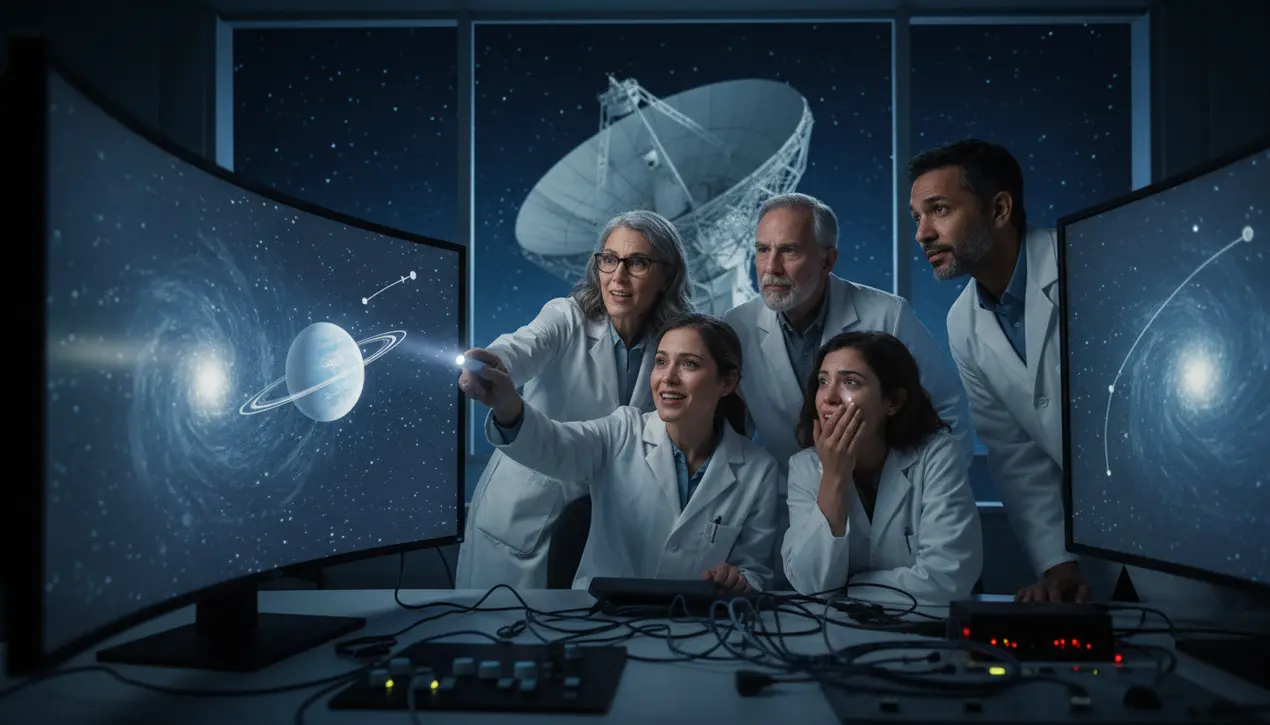
Sciencespace & astronomyExoplanets and Habitable Worlds
Nearby super-Earth may be our best chance yet to find alien life
TH
Thomas Green
5 hours ago7 min read1 comments
In a discovery that sends a palpable shiver of excitement through the global astronomical community, a newly detected super-Earth, a tantalizingly close 20 light-years distant, is emerging as arguably the most promising candidate yet in the relentless, generations-long quest to find life beyond our pale blue dot. This isn't just another exoplanet added to the ever-growing catalog; this is a world that sits squarely within the habitable zone of its parent star, that Goldilocks region where temperatures are just right for liquid water—the fundamental solvent of life as we understand it—to potentially pool on its surface.The revelation, a monumental feat of scientific perseverance and ingenuity, was made possible by the deployment of advanced spectrographs, masterfully engineered at Penn State, which act as cosmic stethoscopes, measuring the infinitesimal wobbles of a star induced by the gravitational tug of an orbiting planet. This technical triumph, however, rests upon a foundation of decades of meticulous observations, a patchwork of data painstakingly gathered from a global network of telescopes peering into the void, a testament to international collaboration in the face of the universe's grandest questions.To grasp the significance, one must look back at the history of exoplanet hunting; for centuries, planets around other stars were purely theoretical, until the 1990s when the first confirmations began to trickle in, initially revealing 'Hot Jupiters'—gas giants searingly close to their stars, fascinating but utterly inhospitable. The hunt then refined, aiming for smaller, rocky worlds like our own, with missions like Kepler unveiling thousands, yet most were tragically too far away for detailed follow-up.This new world, by cosmic standards, is practically in our backyard. Imagine the star it orbits as a campfire just a few neighborhoods away in our galactic city, making it a prime target for the next generation of observatories, most notably the James Webb Space Telescope (JWST).JWST, with its unparalleled infrared sensitivity, is poised to perform the next critical act: atmospheric spectroscopy. By analyzing the starlight filtering through this exoplanet's atmosphere during a transit, scientists will hunt for biosignatures—chemical imprints like the simultaneous presence of oxygen and methane, or other complex molecules that, on Earth, are produced almost exclusively by biological processes.The philosophical implications are staggering; a confirmed detection of even simple microbial life would irrevocably shatter our cosmic isolation, forcing a Copernican revolution far more profound than merely displacing Earth from the center of the universe—it would redefine our place in the biological cosmos. Of course, caution is the scientist's watchword; abiotic processes can sometimes mimic these signs, and the planet's actual conditions—its magnetic field, geological activity, and stellar environment—remain unknown.Yet, this discovery represents a watershed, a specific, tangible point on the celestial map where humanity will now focus its most powerful instruments, transforming the abstract question 'Are we alone?' into a concrete, empirical investigation. It's a beacon of possibility, a world that may, at this very moment, harbor its own story, waiting 20 light-years away for us to finally read its first page.
#featured
#super-Earth
#exoplanet
#habitable zone
#alien life
#astronomy
#Gliese 486 b
Stay Informed. Act Smarter.
Get weekly highlights, major headlines, and expert insights — then put your knowledge to work in our live prediction markets.
Related News
Comments
Loading comments...
© 2025 Outpoll Service LTD. All rights reserved.